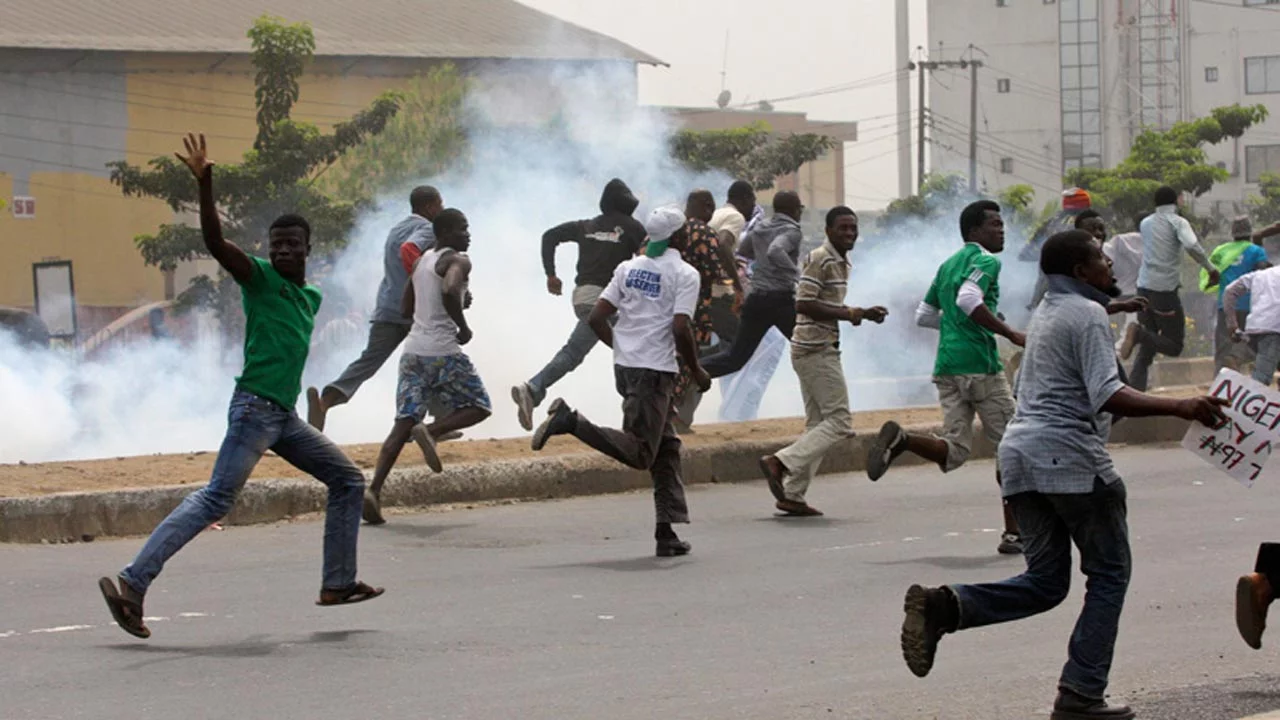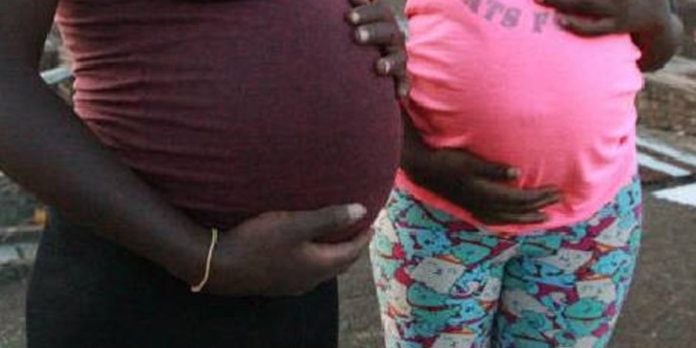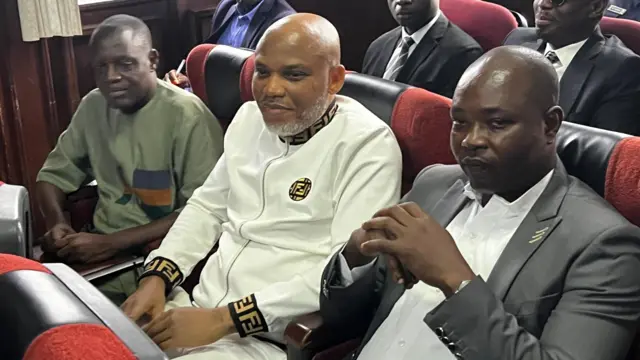People
Van Vicker Biography: Age, Career, Wife, Net Worth, Family, parents, facts

Post Links
Age and Date of Birth
The Super talented artist was born on the 1st of August 1977 which makes him 42 years in 2019.Vicker’s Parent
He was born by a Ghanaian/Librarian mother to a Dutch father. His father died when Van Vicker was only 6 years old.Van Vicker Educational Background
Vicker attended the all boys boarding methodists church School in Cape Coast Ghana named Mfantsipim School.Van Vicker’s professional acting Career
His first attempt into the Showbiz/ entertainment world was in 1997 when he worked as a presenter. Before he ventured into acting, Van Vicker had worked as an On air Personality for the broadcasting bodies:TV3 Ghana, Metro Fm, Groove 106.3Fm, Vibe 91.9 Fm within the years 1997 to 2004. Following this, he was offered a role in a Ghanaian Television Series. In the Tv series titled Suncity, he played the role of an art student, who arrived from U.S to complete his education in Sun City. After the Tv series ended at the 10th episode, Van Vicker went back to his O.A.P work until 3 years later when he got the offer to play a role in an upcoming movie. This Tv series which ran for 10 episodes marked the beginning of Van Vicker’s rise into prominence,as it made his face known in the movie Industry and brought him the offer to take a role in a major movie for the very first time. In the movie which was titled “Divine Love”, Van Vicker’s featured alongside other artistes such as Majid Michel and Jackie Aygemang. However, he became prominent majorly after the role he played in the then-popular movie “Beyonce” and since then he has been going higher on the ladder of success as he is now both recognized in the local and international scene. Over the years, He has featured in quite a number of movies alongside;Omotola Jalade, Stephanie Okereke, Jim Iyke, Tonto Dikeh, Mercy Johnson, Chika Ike, and many others. The role he played in the Australian movie titled Cop’s Enemy brought him International Recognition.List of Van Vicker Movies
During the course of his movie career, he has starred in over 100 movies, some of which includes; 1. American Boy produced in 2007, 2. I Hate Women, 3. Innocent Soul, 4. In the Eyes of My Husband, 5. Princess Tyra, Royal Battle, 6. Slave to Lust, 7. Wedlock of the Gods, 8. Broken Tears released in 2008 9. The Corporate Maid, 10. Friday Night, 11. Jealous Princess, 12. River of Tears,Awards & Recognitions
As a multitalented actor,it won’t be surprising to know that Van Vickér has won many awards in recognition of his unique acting potentials. Some of the awards won by Van Vickér are:- He won Best African Caribbean Actor in 2009
- He won The Afro-Hollywood Award been the Best Actor (African film category)in 2009
- He won The Best Actor African American.
- He won The Pan African Creative Actor Category in 2011
Van Vicker Marriage: Wife and Family
The actor is married to his heartrob Adjoa Vicker who is same age as him. Their marriage which has been in existence for over 15 years is blessed with three children.Van Vicker Foundation
In a bid to give back to the public,Van Vicker has a foundation which plans outreaches for youths called The Van Vicker Foundation. Also, he has a training facility aimed at nurturing and teaching upcoming actors and actresses.Van Vicker Net Worth
The handsome movie star has earned a lot of money for himself as an active hardworking actor, combined with various endorsement deals and offers. Van Vicker has an estimated net worth of $1 Million – $5 Million (Approx.)Van Vicker Contact
The super talented actor can be contacted through his Instagram and Twitter handles which are both @iam_vanvickerDiscover more from Daily Media NG
Subscribe to get the latest posts sent to your email.
People
How Nigeria’s Cult Clashes Threaten Its Workforce and What We Can Do to Stop the Violence

Post Links
The Growing Menace of Cult Clashes in Nigeria
Nigeria, a nation celebrated for its cultural diversity, economic potential, and vibrant workforce, faces a persistent challenge that undermines its progress: cult clashes. Reports of violent confrontations between rival cult groups, resulting in deaths, injuries, and widespread fear, dominate headlines and social media platforms. From Sagamu in Ogun State to the streets of Port Harcourt, these clashes are not isolated incidents but part of a deeply rooted culture of violence that threatens Nigeria’s social fabric and economic stability.
Let us explore the devastating impact of cult violence on Nigeria’s workforce, its broader societal implications, and actionable strategies for violence prevention. By addressing this issue, Nigeria can protect its young, dynamic workforce and pave the way for sustainable development.
The Scope of Cult Clashes in Nigeria
Cult clashes in Nigeria are often linked to secret societies or confraternities that have evolved from university-based groups into organized criminal networks. Groups like the Buccaneers, Black Axe, and Eiye engage in violent rivalries over territorial control, political influence, or personal vendettas. According to posts on X, a single clash in Sagamu, Ogun State, in 2023 left 25 youths dead within 48 hours, highlighting the scale of the problem. These incidents are not confined to one region but occur across states, including Lagos, Rivers, Edo, and Delta.
The constant reporting of these clashes in the media amplifies public fear and desensitizes society to the loss of lives. Nigerian newspapers and online platforms frequently cover stories of brutal killings, machete attacks, and reprisal violence, painting a grim picture of a nation grappling with a culture of violence. This cycle of bloodshed has far-reaching consequences, particularly for Nigeria’s workforce, which is predominantly young and vital to the nation’s economic growth.
Workforce Implications: How Cult Violence Undermines Nigeria’s Economic Potential
Nigeria’s workforce is one of its greatest assets, with over 60% of the population under the age of 30. This youthful demographic is poised to drive innovation, entrepreneurship, and industrial growth. However, the pervasive threat of cult violence poses significant challenges to this potential. Below are the key workforce implications of cult clashes:
- Loss of Human Capital
Cult clashes claim the lives of young Nigerians, many of whom are students, artisans, or early-career professionals. The death toll from cult-related violence, estimated at over 5,000 by 2003, continues to rise. Each loss represents a missed opportunity for economic contribution, innovation, and leadership. The ripple effect is felt in families, communities, and industries that lose skilled or potential workers. - Disruption of Education and Skill Development
Cultism is deeply entrenched in tertiary institutions, where many clashes originate. Campuses become battlegrounds, leading to closures, academic disruptions, and unsafe learning environments. Students, who represent the future workforce, are either killed, injured, or coerced into joining cults, derailing their education and career prospects. This undermines Nigeria’s ability to produce a skilled and competitive workforce. - Erosion of Workplace Safety and Productivity
Businesses operating in areas prone to cult clashes face constant threats of violence, property destruction, and employee absenteeism. Markets, shops, and offices shut down during outbreaks, leading to economic losses. Employees live in fear, reducing morale and productivity. Small and medium enterprises, which employ a significant portion of Nigeria’s workforce, are particularly vulnerable to these disruptions. - Brain Drain and Youth Migration
The culture of violence fuels disillusionment among Nigeria’s youth, many of whom seek safer and more stable environments abroad. The brain drain of skilled professionals—doctors, engineers, and tech experts—weakens the workforce and hampers national development. Those who remain may avoid high-risk areas, limiting economic activity in affected regions. - Stigmatization and Reduced Employability
Individuals from communities associated with cult violence often face stigma, making it harder for them to secure jobs. Employers may hesitate to hire candidates from areas known for clashes, fearing involvement in criminal activities. This perpetuates poverty and unemployment, further fueling the cycle of violence.
UK Tiktok Creation Blueprint with Monetization tips and Coaching – How to create a U.K. tiktok account

The cumulative effect of these workforce implications is a weakened economy, reduced foreign investment, and a tarnished global image. To secure Nigeria’s future, addressing cult violence is not just a security issue but an economic imperative.
The Culture of Violence: Root Causes and Societal Impact
The culture of violence in Nigeria is fueled by a combination of historical, social, and economic factors. Understanding these root causes is critical to developing effective violence prevention strategies.
- Historical Context
Cultism in Nigeria began in the 1950s with the formation of confraternities like the Pyrates Confraternity, initially aimed at promoting social justice and camaraderie. Over time, these groups devolved into violent factions, driven by power struggles and criminal interests. The lack of early intervention allowed cultism to spread from universities to communities. - Socioeconomic Inequality
Poverty, unemployment, and lack of opportunities drive many youths to join cults, which offer a sense of belonging, protection, and financial gain. In a country where 54% of the population lives in poverty, the allure of cults as a pathway to power or survival is strong. - Political Patronage
Cults are often linked to political elites who use them to secure electoral victories or intimidate opponents. This alliance complicates efforts to eradicate cultism, as influential figures shield perpetrators from justice. - Media Sensationalism
The media’s focus on graphic details of cult clashes can glorify violence, inspiring copycat behavior among impressionable youths. Sensational headlines and unverified reports also escalate tensions, as seen in the coverage of herder-farmer conflicts.
The societal impact of this culture of violence extends beyond the workforce. It fosters distrust in institutions, weakens community cohesion, and perpetuates cycles of retribution. Children grow up in environments where violence is normalized, increasing the likelihood of future conflicts.
Strategies for Violence Prevention: Stemming the Tide of Cult Clashes
To break the cycle of cult clashes and protect Nigeria’s workforce, a multifaceted approach to violence prevention is essential. Below are actionable strategies:
- Strengthening Law Enforcement and Judicial Systems
- Enhanced Policing: Train and equip police to respond swiftly and professionally to cult-related incidents. Community policing can build trust and encourage residents to report cult activities.
- Prosecution of Offenders: Ensure swift and transparent prosecution of cult members and their sponsors, regardless of political connections. This deters future violence and restores faith in the justice system.
- Legislation: Enforce existing laws like the Cybercrimes Act to curb online incitement and hate speech that fuel clashes.
- Education and Youth Empowerment
- Anti-Cult Campaigns: Launch nationwide campaigns in schools and universities to educate youths about the dangers of cultism. Peer-led initiatives can be particularly effective.
- Skill Development Programs: Provide vocational training, scholarships, and job opportunities to reduce the economic desperation that drives cult membership.
- Safe Campuses: Implement strict anti-cult policies in tertiary institutions, including expulsions and security patrols, to deter recruitment.
- Community Engagement and Mediation
- Dialogue Platforms: Create forums for community leaders, youths, and security agencies to address grievances and prevent escalations. The social media agreement in Plateau State, facilitated by the Centre for Humanitarian Dialogue, is a successful example.
- Library and Information Services: Use public libraries to disseminate peace-building resources and promote conflict resolution.
- Responsible Media Reporting
- Peace Journalism: Train journalists to report conflicts in ways that promote reconciliation rather than division. Avoiding sensationalism and verifying information can reduce tensions.
- Social Media Regulation: Collaborate with platforms like X to monitor and remove content that incites violence while respecting free speech.
- Addressing Political Patronage
- Transparency in Governance: Investigate and expose politicians who fund or protect cults. Independent anti-corruption agencies can play a key role.
- Electoral Reforms: Strengthen electoral laws to prevent the use of thugs and cults during campaigns, ensuring free and fair elections.
- Economic Development
- Job Creation: Invest in sectors like technology, agriculture, and manufacturing to create jobs for youths, reducing the appeal of cults.
- Infrastructure Development: Improve access to electricity, internet, and education in rural areas to bridge the urban-rural divide and curb unrest.
Conclusion: A Call to Action for a Peaceful Nigeria
The constant reporting of cult clashes in Nigeria is a stark reminder of the urgent need to address the culture of violence. These clashes not only claim lives but also jeopardize the nation’s vibrant workforce, threatening economic growth and social stability. By implementing robust violence prevention strategies—ranging from law enforcement reforms to youth empowerment and responsible media practices—Nigeria can break the cycle of cult violence and unlock its full potential.
Stakeholders, including the government, civil society, media, and citizens, must unite to tackle this menace. The youth, as the backbone of Nigeria’s workforce, deserve a future free from fear and bloodshed. Let us commit to building a Nigeria where peace, opportunity, and prosperity prevail.
Discover more from Daily Media NG
Subscribe to get the latest posts sent to your email.
Health
18-Year-Old Apprentice Who Impregnated 10 Girls Including Master’s Daughter: A Wake-Up Call for Anambra State

Post Links
The Shocking Case of the 18-Year-Old Apprentice Who Impregnated 10 Girls
In a surprising incident in Anambra State, an 18-year-old apprentice impregnated 10 girls in just five months, including his master’s daughter and a salesgirl. The news, shared by Commissioner Ify Obinabo on May 7, 2025, has raised serious concerns about teenage pregnancy in the region. This article looks at the details of this case and what it means for Anambra State’s teenage pregnancy challenges.
What Happened in Anambra State?
The story of the 18-year-old apprentice who impregnated 10 girls started when he was sent to learn a trade. Within three months, he got his master’s daughter and a salesgirl pregnant, leading to his dismissal. After returning to his village, he impregnated eight more girls in two months. Here are the key details:
- Location: The incident happened in Anambra State, with cities like Awka and Onitsha marked as key areas.
- Timeline: The pregnancies occurred over five months, with the first two in the first three months of his apprenticeship.
- Commissioner’s Response: Ify Obinabo, the Commissioner for Women and Social Welfare, called for public help, saying the situation was beyond her capacity.
This case shows how quickly teen pregnancy in Nigeria can become a widespread issue if not addressed.
Why Does Anambra State Face Teenage Pregnancy Challenges?
Anambra State’s teenage pregnancy is influenced by several factors. Let’s break them down:
- Limited Sexual Education: Many teens in Anambra State lack proper sexual education. A 2020 Guttmacher Institute study found that only 24% of Nigerian teens receive comprehensive sexual education, leading to risky behaviors.
- Rural Issues: In rural villages near Onitsha and Awka, there’s often little supervision for young people, making it easier for cases like this to happen.
- Poverty and Peer Pressure: According to the Afrimedic Journal, 50% of teens in Anambra State engage in early sexual activity due to peer pressure, and 27.5% do so for money because of poverty.
These challenges create a tough environment for teens, as seen in the case of the 18-year-old apprentice who impregnated 10 girls.
UK Tiktok Creation Blueprint with Monetization tips and Coaching – How to create a U.K. tiktok account

The Impact of the 18-Year-Old Apprentice’s Actions
The actions of the 18-year-old apprentice who impregnated 10 girls have far-reaching effects on the community. Here’s how:
- Health Concerns: Young girls face health risks like complications during pregnancy and childbirth.
- Education Loss: Pregnant teens often drop out of school, which limits their future opportunities.
- Family Struggles: Families in rural Anambra State struggle to support extra children, especially with limited resources.
- Community Impact: The case has caused alarm, with the commissioner questioning if there’s a deeper issue at play, possibly even spiritual.
This situation highlights the urgent need for unintended pregnancy solutions in Anambra State.
How Can We Address Anambra State Youth Challenges?
The case of the 18-year-old apprentice who impregnated 10 girls is a wake-up call. Here are some practical steps to tackle Anambra State youth challenges:
- Teach Sexual Education in Schools: Schools in Anambra State should include sexual education programs to teach teens about safe practices and the risks of early pregnancy.
- Provide Access to Contraceptives: Making contraceptives available in rural areas can help. Afrimedic Journal notes that 90% of sexually active teens in Anambra State use condoms when they have access.
- Create Awareness Programs: Community workshops can educate parents and teens about the dangers of teen pregnancy in Nigeria and how to avoid peer pressure.
- Support Families Economically: Poverty pushes teens into risky behaviors. Offering vocational training or financial support can help families in Anambra State.
- Involve Local Leaders: Religious and cultural leaders can help break taboos and encourage open discussions about preventing teenage pregnancies.
The Government’s Role in Solving This Crisis
The Anambra State government must take action to prevent cases like the 18-year-old apprentice who impregnated 10 girls from happening again. They can:
- Fund programs focused on unintended pregnancy solutions.
- Build youth centers in rural areas to offer guidance and support.
- Work with NGOs to provide free contraceptives and educational materials.
Commissioner Obinabo’s plea for help shows that even officials need community support to tackle this issue.
Conclusion: Learning from the 18-Year-Old Apprentice’s Case
The story of the 18-year-old apprentice who impregnated 10 girls, including his master’s daughter, is a clear sign that Anambra State needs to act fast on teenage pregnancy. By improving sexual education, providing resources, and supporting families, we can help teens make better choices. Let’s work together to create a safer future for Anambra State’s youth. Have ideas on how to address this issue? Share them in the comments below!
Discover more from Daily Media NG
Subscribe to get the latest posts sent to your email.
People
Nnamdi Kanu Case: Court’s Admission of Evidence Shakes Nigeria’s Legal Landscape

Post Links
A Pivotal Moment in the Nnamdi Kanu Case
The ongoing trial of Nnamdi Kanu, the leader of the Indigenous People of Biafra (IPOB), has been a lightning rod for controversy in Nigeria. Recently, a significant development occurred when a Federal High Court in Abuja admitted new evidence against Kanu, a move that has sparked heated debates about the future of his case and the broader implications for Nigeria’s judicial and political systems. This blog post delves into the details of this court admission, what it means for Kanu’s legal battle, and the potential consequences for his release from prison. We will explore the context of the case, the nature of the admitted evidence, and the ripple effects this could have on Nigeria’s southeast region and beyond.
UK Tiktok Creation Blueprint with Monetization tips and Coaching – How to create a U.K. tiktok account

Background: Who is Nnamdi Kanu and Why is His Case Significant?
Nnamdi Kanu, a British-Nigerian activist, founded IPOB in 2012 to advocate for the secession of Nigeria’s southeastern region to form an independent Biafran state. His activism, primarily through Radio Biafra, has made him a polarizing figure. Kanu was first arrested in 2015 on charges including treason and terrorism, sparking a legal saga that has seen multiple court rulings, bail disputes, and allegations of human rights violations. After fleeing Nigeria in 2017 following a military raid on his home, Kanu was controversially extradited from Kenya in 2021, an action courts later deemed illegal.
Currently detained by the Department of State Services (DSS), Kanu faces a seven-count charge related to terrorism, incitement, and illegal possession of broadcast equipment. The case is not just a legal matter but a political flashpoint, with Kanu’s supporters arguing that his detention is a form of persecution for his Biafran advocacy, while the Nigerian government insists he poses a national security threat. The recent court admission of evidence has brought renewed attention to the case, raising questions about its trajectory and Kanu’s prospects for release.
The Court’s Admission of Evidence: What Happened?
On May 7, 2025, reports emerged that the Federal High Court in Abuja admitted new evidence in Kanu’s trial, a development that has been described as a critical juncture. According to posts on X, the court accepted evidence presented by the prosecution, though specifics about the nature of this evidence remain limited. Earlier court sessions, such as one on April 30, 2025, provided context: a DSS witness testified about Kanu’s arrest in 2015, revealing that no weapons or “instruments of terrorism” were found in his possession, despite the terrorism charges. The same witness admitted that an analysis of Kanu’s phone was conducted but not submitted to the court, as it was deemed irrelevant.
Additionally, the prosecution has alleged that Kanu used Radio Biafra to incite violence, including attacks on security operatives and government facilities. These claims form the backbone of the seven charges, which include spreading inciting messages, importing a radio transmitter, and instructing IPOB members to disrupt elections. The court’s decision to admit evidence, potentially including video or audio recordings of Kanu’s broadcasts, could strengthen the prosecution’s case by providing tangible proof of incitement, even as the defense argues that no direct link to violence has been established.
What Does the Admission of Evidence Mean for Kanu’s Case?
The admission of evidence is a double-edged sword in the Nnamdi Kanu case. Here is a breakdown of its implications:
- Strengthening the Prosecution’s Narrative: The Nigerian government has long argued that Kanu’s broadcasts incited violence and destabilized the southeast. If the admitted evidence includes clear examples of Kanu encouraging violent acts, it could bolster the terrorism charges. The prosecution has previously pointed to Kanu’s alleged calls for attacks on police and government property, as well as his role in founding the Eastern Security Network, an armed wing of IPOB. However, the defense has consistently challenged the credibility of such claims, noting that no individual has been directly linked to Kanu’s orders in court.
- Challenging the Defense’s Position: Kanu’s legal team, led by prominent lawyers like Kanu Agabi, has argued that the charges are baseless and politically motivated. They have highlighted procedural irregularities, such as Kanu’s illegal extradition and the lack of concrete evidence tying him to specific acts of violence. The admission of evidence could force the defense to pivot, focusing on discrediting the new material or arguing that it falls short of proving terrorism. For instance, the defense has previously questioned why no weapons were found during Kanu’s arrest, undermining the narrative of him as a terrorist.
- Judicial Scrutiny and Fairness: The court’s handling of the evidence will be under intense scrutiny. Past rulings, such as the 2022 Appeal Court decision that dropped all charges against Kanu due to his illegal extradition, only for the Supreme Court to reinstate the trial in 2023, have raised questions about judicial independence. The admission of evidence must adhere to legal standards, with the defense having access to review and challenge it. Any perception of bias could fuel public unrest, particularly in the southeast, where Kanu enjoys significant support.
- Impact on Bail Applications: Kanu has repeatedly sought bail, citing health concerns and the need for better access to his legal team. The court’s admission of evidence could complicate these efforts, as it may reinforce the government’s argument that Kanu is a flight risk or a threat to national security. In 2022, a bail application was denied because Kanu had previously fled Nigeria, a point the prosecution continues to emphasize.
Implications for Nnamdi Kanu’s Release from Prison
The question of whether Kanu will be released from prison hinges on several factors influenced by the recent court developments:
- Legal Outcome of the Trial: If the admitted evidence significantly strengthens the prosecution’s case, Kanu could face a prolonged trial and potential conviction, keeping him in DSS custody. Conversely, if the defense successfully discredits the evidence or highlights procedural flaws, Kanu’s chances of acquittal or a political resolution increase. The reassignment of the case to a new judge in March 2025, following Kanu’s accusations of bias against Justice Binta Nyako, could also play a role in ensuring a fairer trial, potentially favoring Kanu’s release.
- Political Pressure and Public Sentiment: Kanu’s detention has been a rallying point for IPOB supporters and a source of unrest in the southeast. Calls for his release have come from prominent figures, including the South-East Governors and Peter Obi, who argue that freeing Kanu could de-escalate tensions and foster dialogue. The admission of evidence may intensify these calls if it’s perceived as weak or politically motivated, putting pressure on the government to seek a non-judicial solution.
- International Attention: Kanu’s British citizenship and the UN’s 2022 call for his release due to his illegal rendition have kept the case in the global spotlight. The court’s handling of the evidence could prompt further international scrutiny, particularly if human rights violations are alleged. This could push the Nigerian government to consider releasing Kanu to avoid diplomatic fallout.
- Regional Stability: The southeast has seen increased violence linked to IPOB and its offshoots, with the government attributing much of it to Kanu’s influence. Releasing him could either calm tensions by addressing a key grievance or embolden separatist activities, depending on the terms of his release. The government’s fear of Kanu inciting further unrest, as articulated by former Attorney-General Abubakar Malami, remains a significant barrier.
Broader Implications for Nigeria
The Nnamdi Kanu case transcends the courtroom, touching on issues of free speech, self-determination, and Nigeria’s unity. The admission of evidence could set a precedent for how the judiciary handles politically charged cases, particularly those involving separatist movements. A conviction based on robust evidence might deter other agitators but risks alienating the southeast further. Conversely, an acquittal or release could embolden IPOB while signaling judicial independence.
The case also highlights Nigeria’s struggle to balance security concerns with human rights. Kanu’s prolonged detention, often in solitary confinement, has drawn criticism from human rights groups, and the court’s next steps will be closely watched. Moreover, the trial’s outcome could influence the 2027 elections, as Kanu’s supporters remain a potent political force in the southeast.
Conclusion: A Case at a Crossroads
The recent court admission of evidence in the Nnamdi Kanu case marks a critical turning point. While it strengthens the prosecution’s hand, it also places the judiciary under a microscope, with the defense poised to challenge the evidence’s validity. For Kanu, the stakes are high: the outcome will determine whether he remains in prison or regains his freedom, either through legal victory or political negotiation. For Nigeria, the case is a test of its commitment to justice, unity, and stability.
As the trial progresses, the world watches to see whether the court will uphold the rule of law or succumb to political pressures. Kanu’s fate, intertwined with the aspirations of millions in the southeast, hangs in the balance. Stay tuned for updates as this landmark case unfolds.
Discover more from Daily Media NG
Subscribe to get the latest posts sent to your email.
-

 Politics2 days ago
Politics2 days agoRivers State in Crisis: Alleged N400bn Misappropriation by Sole Administrator Sparks Senate Probe and Threatens Peace Process
-

 Politics2 days ago
Politics2 days agoDSS Detains NANS President Atiku Isah – Seyi Tinubu Allegations Uncovered
-

 Entertainment4 days ago
Entertainment4 days ago7 Nigerian Celebrities Born Into Wealth Who Carved Their Own Paths to Stardom
-

 Politics4 days ago
Politics4 days agoVeryDarkMan’s Arrest Sparks Outrage: Why Nigerians Are Boycotting GTBank Over EFCC Drama
-

 Politics4 days ago
Politics4 days agoThe Collapse of the Fubara-Wike Peace Accord and the Looming Crisis Amid State of Emergency
-

 Education3 days ago
Education3 days agoJAMB 2025 Results Reveal Mass Failure: What It Means for Nigeria’s Education Quality
-

 People2 days ago
People2 days agoNnamdi Kanu Case: Court’s Admission of Evidence Shakes Nigeria’s Legal Landscape
-

 Politics4 days ago
Politics4 days agoVeryDarkMan’s Arrest by EFCC: Cyberstalking Charges Revealed as Court Date Looms

















